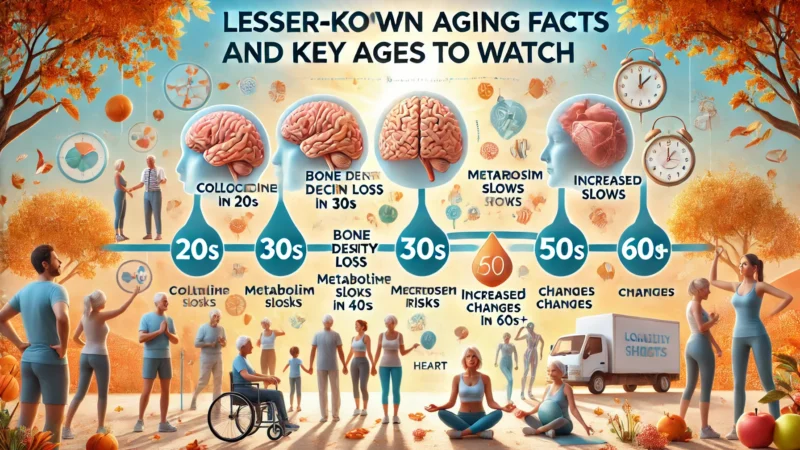Understanding the Stages of Menopause: What to Expect and How to Navigate It
Menopause is a natural transition marking the end of a woman’s reproductive years. Rather than occurring overnight, it unfolds gradually through several distinct phases—each with its own physiological and emotional changes. Understanding these stages can empower you to manage symptoms, make informed health decisions, and embrace this new chapter of life with confidence.
1. The Transition Begins: Perimenopause
What Is Perimenopause?
Perimenopause is the transitional period leading up to menopause. It can begin several years before your final menstrual period—often in your 40s, though it may start earlier. During this time, your ovaries gradually produce less estrogen, triggering a cascade of changes throughout your body.
Key Changes and Symptoms:
- Hormonal Fluctuations: These result in irregular menstrual cycles, both in timing and intensity. Your periods might become shorter or longer, heavier or lighter, and sometimes skipped altogether.
- Physical Symptoms: Common issues include hot flashes, night sweats, sleep disturbances, and changes in metabolism. You might also experience headaches or a noticeable shift in your energy levels.
- Emotional Shifts: The unpredictable hormone levels can lead to mood swings, irritability, or even periods of anxiety. Concentration and memory may also be affected, sometimes referred to as “brain fog.”
- Impact on Daily Life: With the variability of symptoms, planning daily activities might require more flexibility. Many women find that lifestyle adjustments—such as improved sleep habits, regular exercise, and stress management techniques—can make this phase more manageable.
2. The Definitive Milestone: Menopause
Defining Menopause:
Menopause is officially diagnosed when a woman has gone 12 consecutive months without a menstrual period. This marks the end of natural fertility and a significant shift in hormone production, primarily a steep decline in estrogen and progesterone levels.
What to Expect During Menopause:
- Intensified Symptoms: Many women report that symptoms such as hot flashes, night sweats, and sleep disruptions become more pronounced during this stage. Vaginal dryness and changes in libido can also occur, affecting physical comfort and intimacy.
- Emotional and Psychological Effects: The emotional rollercoaster might continue as your body adjusts to new hormone levels. Some women experience feelings of loss or even sadness as they come to terms with the end of their reproductive years.
- Health Considerations: The drop in estrogen can have wider implications for your overall health. For instance, lower estrogen levels can increase the risk of cardiovascular disease and contribute to a reduction in bone density, making you more susceptible to osteoporosis.
- Navigating the Change: Many women find that a well-considered birth plan or a consultation with their healthcare provider can help tailor treatment options—whether that means exploring hormone replacement therapy (HRT) or adopting non-hormonal strategies to ease discomfort.
3. Life After Menopause: Postmenopause
What Is Postmenopause?
Postmenopause is the phase that follows menopause. While some of the more disruptive symptoms of the transition may gradually diminish, the long-term effects of hormonal changes continue to shape your health.
Health and Lifestyle Considerations:
- Symptom Evolution: For many, the intensity of hot flashes and night sweats decreases over time. However, other changes—such as vaginal dryness, urinary incontinence, and a continued risk of osteoporosis—may persist.
- Long-Term Health Risks: The decline in estrogen is linked to an increased risk of certain conditions, including cardiovascular disease and bone fractures. Preventative measures become essential, and your healthcare provider might recommend regular screenings or lifestyle interventions.
- Well-Being and Support: Maintaining a balanced diet, engaging in regular physical activity, and participating in weight-bearing exercises can help manage these risks. Additionally, support from healthcare professionals, family, and community groups can play a vital role in ensuring emotional well-being.
- Adapting to a New Normal: Many women view postmenopause as a time of renewed freedom and opportunity. With a deeper understanding of their bodies, they often embrace lifestyle changes that promote long-term health and vitality.
4. Managing Menopause: Strategies for a Smoother Transition
Lifestyle Adjustments:
- Nutrition and Exercise: A balanced diet rich in calcium and vitamin D, along with regular exercise, can mitigate the risk of osteoporosis and improve cardiovascular health. Incorporating stress-reduction techniques like yoga or meditation can also help manage mood swings.
- Sleep Hygiene: Establishing a consistent sleep routine and creating a restful environment can combat sleep disturbances and improve overall energy levels.
- Hydration and Skin Care: Drinking plenty of water and using skin moisturizers or estrogen-based creams can help manage symptoms like vaginal dryness and skin changes.
Medical and Alternative Treatments:
- Hormone Replacement Therapy (HRT): For some women, HRT can effectively relieve symptoms such as hot flashes and prevent bone loss. However, it’s important to weigh the benefits against potential risks and to discuss these options thoroughly with your healthcare provider.
- Non-Hormonal Medications: There are alternatives to HRT that can help manage specific symptoms like hot flashes or mood swings. These may include certain antidepressants, blood pressure medications, or natural supplements.
- Complementary Approaches: Some women explore acupuncture, herbal remedies, or dietary supplements to ease menopausal symptoms. While these approaches can be beneficial for some, it’s important to use them under the guidance of a healthcare professional.
5. Embracing the Change
A Time of Transition and Growth:
While menopause brings challenges, it also offers an opportunity to reassess priorities and focus on long-term health and well-being. Understanding the natural progression of perimenopause, menopause, and postmenopause can help you make proactive choices and seek support when needed.
Empowerment Through Knowledge:
Being informed about what to expect during each stage of menopause enables you to better manage symptoms, explore treatment options, and maintain a high quality of life. Whether you choose to adopt lifestyle modifications, seek medical treatment, or combine both, the key is to tailor your approach to what works best for you.
Menopause is not a single event but a continuum that unfolds in stages—each bringing its own set of physical, emotional, and health-related changes. From the gradual onset of perimenopause to the definitive milestone of menopause and the ongoing adjustments of postmenopause, understanding these phases is crucial. With the right combination of lifestyle strategies, medical interventions, and emotional support, you can navigate this transition effectively and embrace the next chapter of your life with confidence and resilience.
This expanded overview encapsulates the key points and recommendations from the Cleveland Clinic article on menopause stages, providing a detailed guide on what to expect and how to manage the changes that come with this natural phase of life.



